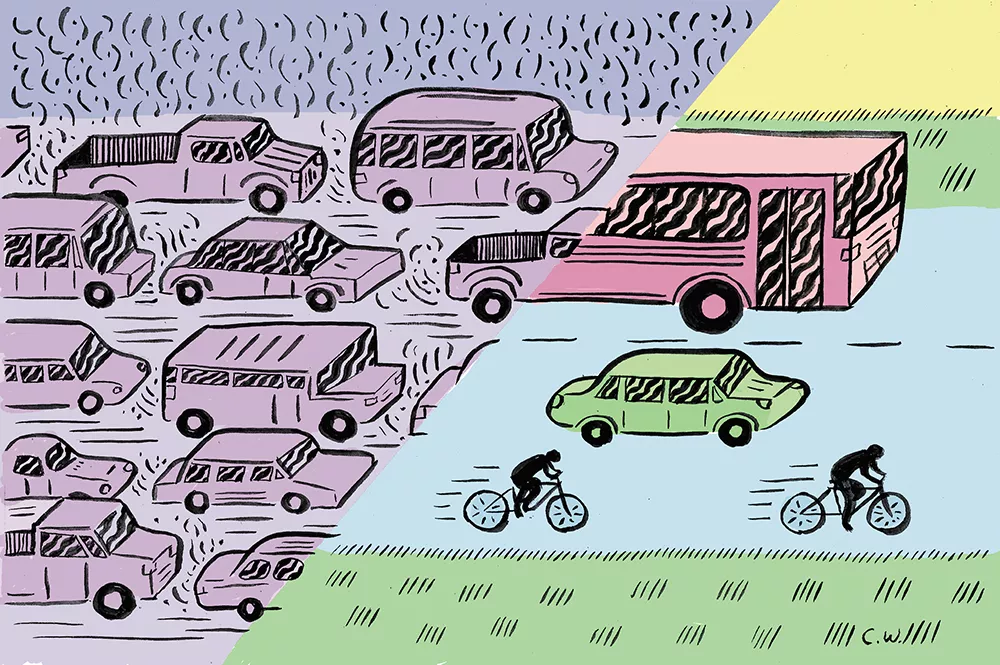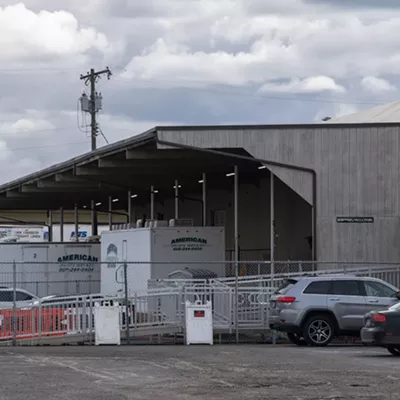Our transportation system is breaking down. In Idaho, we would need an additional $262 million a year to maintain our existing approach. Nationally, it would require $3.6 trillion — almost the same amount as our entire federal budget.
We have built a system we can't afford. The proposed solution? Supersize it, so it's even bigger and less affordable. The current plan at both the state and federal levels is to continue expanding our existing system through ever-wider roads.
Forget about building a bigger system. To even close the funding gap to maintain existing roads and bridges would require tremendous tax increases. The gas tax, for example, would have to be raised not by pennies per a gallon, but by dollars.
While solving our transportation crisis will require some additional funding, the first step is to open our minds to new approaches rather than further opening our wallets.
The first step is to stop digging the hole deeper. We can't continue building roads we can't afford. When we rebuild a road wider, we're not just expanding capacity — we're creating a new liability on our balance sheet that will be even more expensive to repair when it needs to be replaced.
The current auto-focused system is also dangerous. We've asked our engineers to focus almost solely on how to move cars faster. The results are deadly, as vehicles collide at higher speeds with each other and pedestrians — frequently fatally.
A balanced transportation system, with increased support for biking, walking and transit, would be more affordable and safer for everyone.
It costs less to move people by bicycle, bus and their own two feet than by single-occupancy vehicles. This isn't just true for us as a society, but as individuals, too. Cars are expensive and not everyone can afford one. Personal liberty is enhanced by a transportation system with more options to get around.
This argument for a more balanced, affordable transportation system with safe options for everyone to get around isn't new. It's actually the way we used to build things before the interstate highways and suburban sprawl. It's about emphasizing economic growth through traditional downtowns and walkable neighborhoods.
It's an approach being championed by nonprofits, like Strong Towns (strongtowns.org), which is working to create a new paradigm for future growth that is economically sustainable. (Full disclosure: I serve on Strong Towns' board of directors.)
Of course, the protectors of the status quo also are organizing. A particularly dedicated faction have taken up residence at the Seattle Times, where they regularly attack the city's "war on cars." Their belief is that any new bike lane, reduction in parking or pedestrian safety improvement is an attack on our automotive-dominated transportation system. They might be right.
But what they are missing is the more problematic battle being waged: The nearly century-long war on people by a transportation system that believes moving around hunks of metal is more important than actually moving and protecting the lives of human beings.
Just for the sake of safety and quality of life, it makes sense to reform our transportation system. But even if that weren't the case, it would still be time to make a change, because we simply can't afford continuing to move in our current direction. ♦
John T. Reuter, a former Sandpoint City Councilman, is the executive director of Conservation Voters for Idaho. He has been active in protecting Idaho's environment, expanding LGBT rights and the Idaho Republican Party.


















